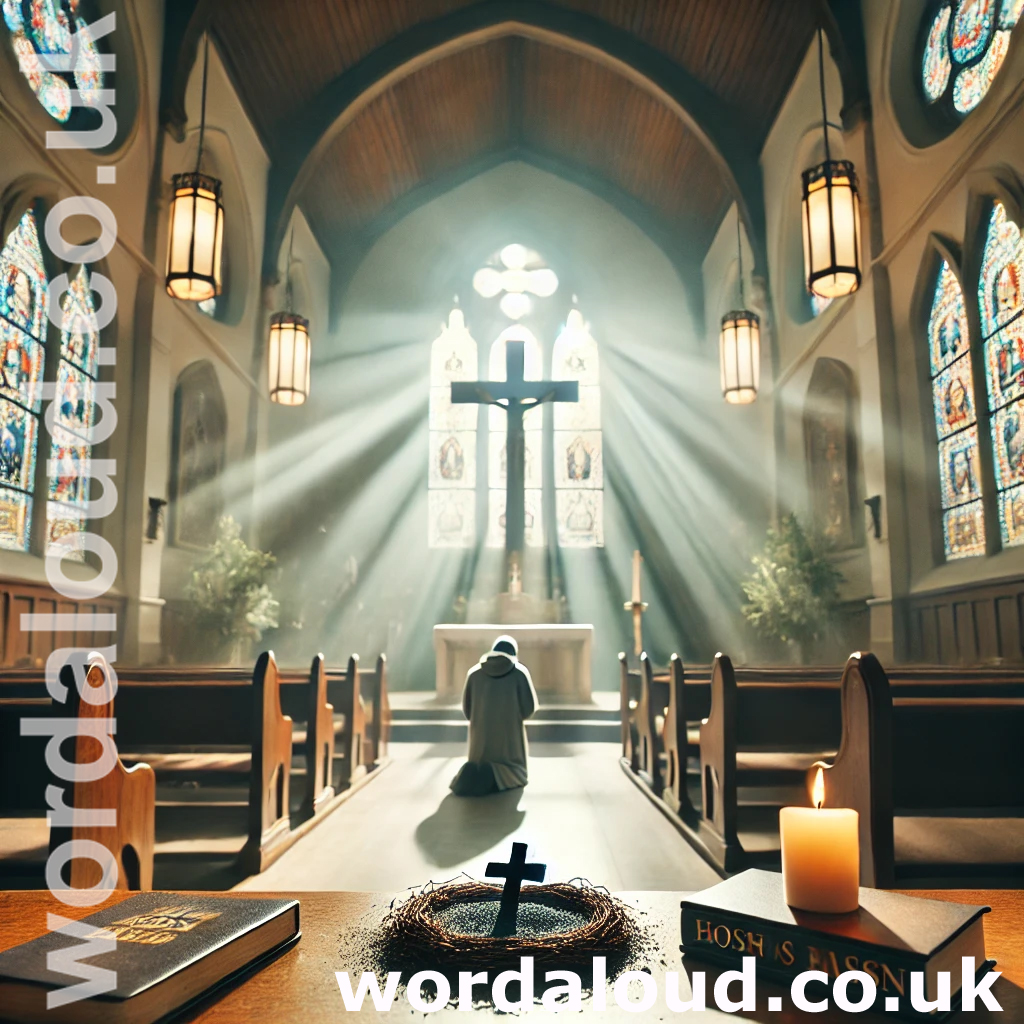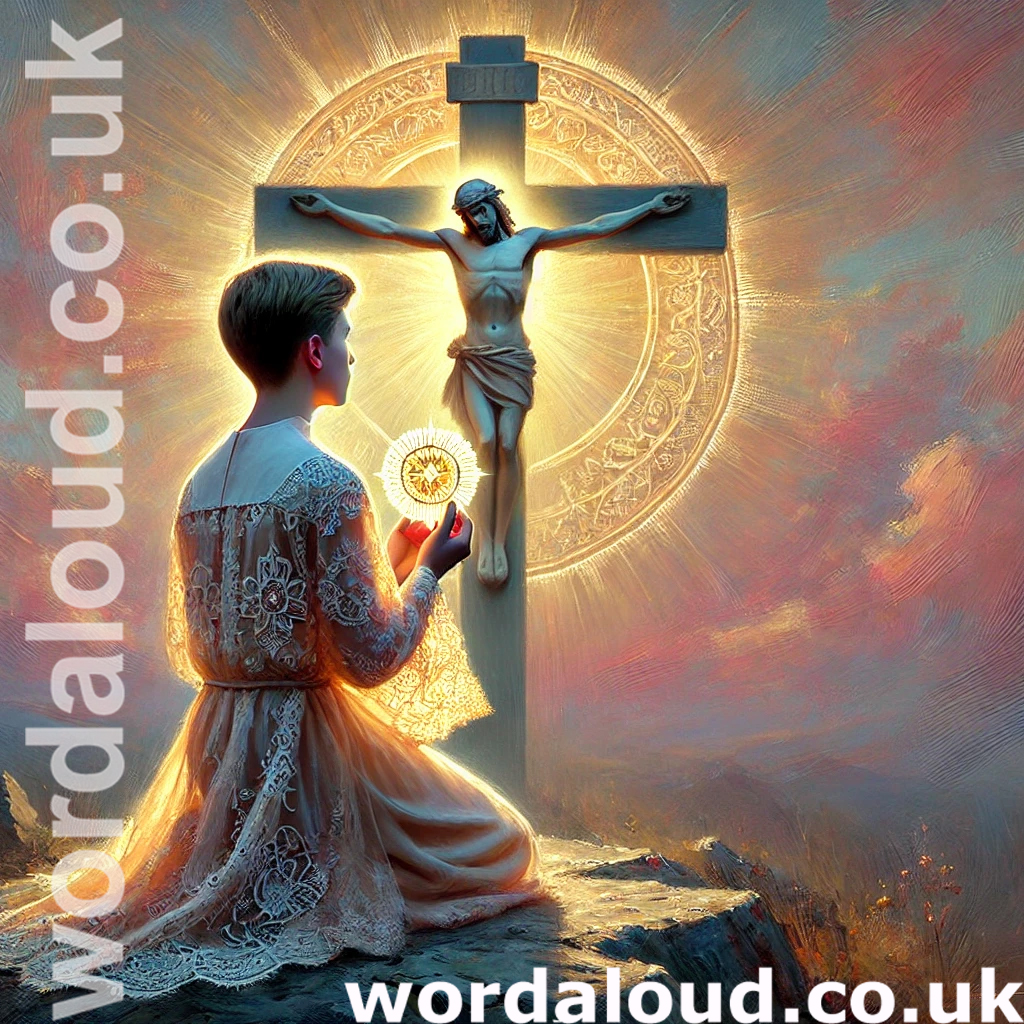Christian Art | Prayer With Jesus | Psalms | Assurance Of Victory For God’s Priest-King | King David As A Boy | Audio KJV | Love Revealed By Jesus Christ | King James Audio Bible
Psalm 110 | King James Audio Bible
YouTube: Psalm 110 | KJV | King James Version | Audio Bible | Word Aloud
Psalm 110, a profound and influential text, has been the subject of theological interpretation and analysis, particularly within the Christian tradition where it holds significant Christological implications.
Authorship And Historical Context
While traditionally attributed to King David, exact authorship of Psalm 110 is a subject of scholarly debate. However, its historical and cultural significance is undiminished. Set against the backdrop of Israel’s monarchical and religious contexts, the psalm reflects the era’s aspiration for a leader who embodies both kingly authority and priestly sanctity.
Structure And Content
Comprising seven verses, Psalm 110 is succinct yet rich in imagery and meaning. The psalm begins with a divine decree, establishing a tone of divine authority and kingship. Subsequent verses extend this theme, depicting the king’s power, the people’s allegiance, and a unique eternal priesthood, likened to that of Melchizedek, a figure of royal and priestly significance referenced in Genesis.
Themes And Interpretation
The psalm combines royal and priestly imagery, a duality rare in Jewish tradition. The psalm emphasizes the divine sanction of the king’s rule, positioning the priest-king as an appointee and representative of God. The psalm’s eschatological overtones, with references to ultimate victory and divine judgment, resonate with themes of final divine justice.
Christological Implications
Christian interpretations of Psalm 110 view the psalm as a Messianic prophecy, foreseeing ascension and exaltation of Jesus Christ. This portrays Jesus as fulfilling the roles of both king and high priest, uniting these in a manner unique to the Hebraic tradition. The reference to Melchizedek is interpreted as prefiguring Christ’s eternal, unblemished priesthood, as opposed to the Levitical priesthood.
The later verses of the psalm, with themes of judgment and victory, are seen as pointing to Christ’s role in the final judgment and his ultimate victory over evil, reinforcing portrayal of Jesus as the spiritual and eternal ruler.
New Testament References
Psalm 110 is cited in the New Testament. Jesus himself references the psalm in dialogues with the Pharisees (Matthew 22:44, Mark 12:36, Luke 20:42-43), using it to discuss the Messiah’s nature. Peter, in his Pentecost sermon (Acts 2:34-35), and the author of Hebrews (Hebrews 1:13; 5:6,10; 7) also cite the psalm, emphasizing Jesus’ unique priesthood and superiority.

Commentary By Pope Benedict XVI
Pope Benedict XVI, in his general audience on November 16, 2011, provided an interpretation of Psalm 110, highlighting its foreshadowing of Jesus Christ as Messiah, King, and High Priest. Pope Benedict XVI explained that ‘the Church reads this Psalm as a prophecy of Christ, the messianic king and eternal priest, risen from the dead and seated at the right hand of the Father,’ emphasizing its royal and priestly themes as central to understanding Christ’s nature and mission.
Pope Benedict XVI elaborated on the psalm’s use in the Church’s evening prayer, vespers, every Sunday, and its historical interpretation as a reference to the king’s divine sonship. Pope Benedict XVI linked the psalm’s imagery to Christ, particularly the priesthood ‘according to the order of Melchizedek,’ as applied to Jesus in the Letter to the Hebrews. Pope Benedict XVI emphasized that the psalm’s prophecy and the Melchizedek priesthood find their fulfilment in the death, resurrection, and ascension of Christ, rendered ‘absolute and eternal, a reality that knows no sunset.’
Moreover, Pope Benedict connected the offering of bread and wine by Melchizedek with Jesus’ Eucharistic gesture, symbolizing the offering of himself, bringing life to all believers. He concluded that Jesus’ victory in the ongoing battle between good and evil, wherein Christ emerges stronger with the power of God, underlines the triumph of good, love, and not hatred.
Conclusion
Psalm 110, with its dual imagery of kingship and priesthood, combined with its Messianic and eschatological themes, becomes a pivotal text. Its influence on theological thought, particularly in shaping understanding of Jesus Christ’s nature, work, and kingdom in Christian doctrine, underscores its enduring importance. The psalm invites believers to consider the true nature of kingship and priesthood, as exemplified in Christ, and to follow his path of obedience, service, and love.
Psalm 110 | King James Audio Bible
The LORD said unto my Lord, Sit thou at my right hand, until I make thine enemies thy footstool.
The LORD shall send the rod of thy strength out of Zion: rule thou in the midst of thine enemies.
Thy people shall be willing in the day of thy power, in the beauties of holiness from the womb of the morning: thou hast the dew of thy youth.
The LORD hath sworn, and will not repent, Thou art a priest for ever after the order of Melchizedek.
The Lord at thy right hand shall strike through kings in the day of his wrath.
He shall judge among the heathen, he shall fill the places with the dead bodies; he shall wound the heads over many countries.
He shall drink of the brook in the way: therefore shall he lift up the head.
Psalm 110 | King James Audio Bible
- Divine Kingship: The psalm emphasizes the authority and power of a divinely appointed king, symbolized by sitting at God’s right hand.
- Eternal Priesthood: The psalm introduces the concept of an eternal priesthood, distinct from the Levitical order, embodied in the figure of Melchizedek.
- Messianic Prophecy: Christians interpret the psalm as a prophecy about Jesus Christ, the Messiah, who combines the roles of king and high priest.
- Divine Judgment: The text includes themes of divine judgment and the king’s role in executing this judgment over nations and enemies.
- Victory over Enemies: The psalm portrays the king’s ultimate victory over his enemies, symbolizing the triumph of divine will.
- Royal and Priestly Unity: The unique fusion of royal and priestly motifs in the psalm represents a significant theological concept, especially in Christian theology regarding Christ.
- Eschatological Overtones: The psalm has end-times implications, particularly in its depiction of the king’s role in final judgment and victory.








